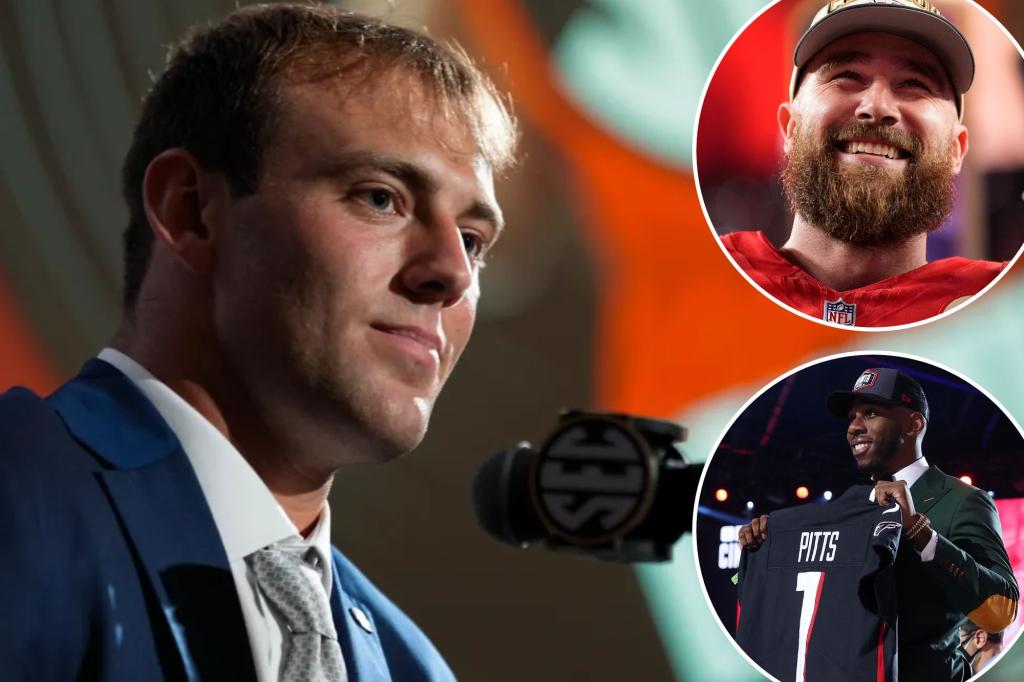Brock Bowers is a top prospect in the upcoming NFL draft, with many praising his physical abilities and penchant for creating mismatches on the field. However, some argue against using a high draft pick on a tight end, citing the league’s history of successful tight ends who were not first-round picks. The debate rages on as the NFL grapples with the scouting issues surrounding the tight end position.
Former Buccaneers general manager Mark Dominik believes that the NFL’s focus on athletic tight ends has led to a lack of emphasis on natural ball-catching abilities. While players like Travis Kelce and George Kittle have excelled after being drafted in later rounds, there is still a trend of first-round tight ends performing well in the league. The varying success rates of top tight ends from different draft rounds raise questions about the scouting process for this position.
The success of tight ends like Kelce and Kittle, who were drafted outside of the first round, has led some teams to rethink their strategy when it comes to drafting premium tight end talent. However, there are exceptions to every rule, and some first-round tight ends have gone on to have successful careers in the NFL. The debate over drafting a tight end early in the draft continues, with teams weighing the potential of top prospects like Brock Bowers against the historical trends of the position.
Kyle Pitts, the highest-drafted tight end in NFL history, has experienced mixed success since entering the league. While Pitts initially showed promise, his production has been impacted by changes at the quarterback position. Teams are mindful of the importance of the quarterback-tight end connection when evaluating prospects like Bowers. The Jets, armed with Aaron Rodgers as their quarterback, see Bowers as a potential difference-maker on offense.
Despite the historical trends at the tight end position, there is a belief that Brock Bowers could be an exception to the rule. With strong lower-body strength and an ability to create yards after the catch, Bowers stands out among his peers. The debate over Bowers’ draft value continues, with some analysts believing he is one of the top players in the upcoming draft. Whether Bowers can break the mold of previous tight end draft picks remains to be seen.
In conclusion, the NFL’s scouting process for tight ends remains a topic of debate, with arguments on both sides of the spectrum. While history shows success stories of tight ends drafted outside of the first round, there are still examples of first-round tight ends excelling in the league. Brock Bowers represents a new chapter in this ongoing discussion, with his unique skill set and potential to make an impact in the NFL. Ultimately, the decision to draft Bowers with a high pick will depend on how teams evaluate his abilities and potential fit within their respective offensive systems.


